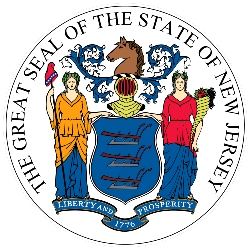NJ Casino Taxes a Fraction of Surrounding States

In 1978, Atlantic City’s first legalized casino opened its doors for business, and soon after the New Jersey city established itself as a well-known destination to visit for East Coast vacationers wanting to try their luck at the slots and table games. Times have changed greatly since then, though, with all of New Jersey’s neighbors having now launched their own prospective casinos industries. One thing that has remained largely the same, though, is New Jersey’s casino tax rate which has not kept up with the times, with the situation resulting in a debate recently getting underway about whether or not it’s finally time to bring the Garden State’s gambling taxes more in line with general industry practice.
A Fraction that of Other States
Currently, casinos in Atlantic City pay an 8 percent tax on their gross gaming revenue plus an additional 1.25 percent community investment alternative tax. Under this system of taxation, New Jersey’s casinos paid $237 million in taxes in 2016. Compare that to the 55% slot machine and 16% table game tax paid in Pennsylvania, which last year collected $1.379 billion from its 12 casinos, and the dramatic difference in tax rates becomes painfully evident. New York’s nine and Maryland‘s five casinos are also placed under a heavier tax burden, paying $888 million (31-41% tax) and $452 million (20% table games, 50-61% slots) in 2016, respectively.
Pro Tax Hikes
Understandably, some New Jersey lawmakers think it’s high time to make Atlantic City casinos pay more to the state for being allowed to legally operate their gambling venues. As a result, there have been proposals made recently to increase the tax on gross gaming revenue in order to bring it more in line with the rates assessed in neighboring states. Other lawmakers have also suggested adopting a tax on revenues brought in from food, beverages, and entertainment sold at casinos, which at this present time is not taxed at all. Amongst those calling out for a change of the system is Jeff Gural, owner of the Meadowlands racetrack in North New Jersey, as well as two more in New York. Commenting on the situation, the businessman stated:
“You guys have been ripped off by the casino industry for 30 years. I wrote the casino laws in New York. The tax rate here [New Jersey] is a fiasco. Basically what has happened in Atlantic City is that operators have taken profits from here and built competition for Atlantic City.”
Against Tax Increases
Representatives for the Atlantic City casino industry, on the other hand, argue that the lower tax rate offered in Atlantic City is needed in order to modernize and develop the area. According to those in this camp, it has taken millions of dollars to develop first-class resort hotels in Atlantic City so as to remain competitive with Las Vegas, as well as other casinos in the immediate vicinity.
Opponents of tax changes further state that the Atlantic City gambling market is just starting to rebound after suffering several years of declining revenue, and that taxing operators more heavily now could slow the economic recovery, or put casinos that are just barely in the black out of business, in the process costing hundreds of thousands of local people their jobs. One such opponent is Assemblyman Vince Mazzeo, D-Atlantic, and as he explains:
“At a time when Atlantic City is on the rebound, I don’t believe raising taxes on the city’s biggest industry and employer will benefit our region. Now with the PILOT [Payment in lieu of taxes] program in place, we’ve stopped the tax-appeal lottery and stabilized the ratable base so we can continue to allow Atlantic City to prosper.”
Profits Being Taken Out of State
Those for changing the New Jersey gambling tax system, however, counter that operators are playing the system to their advantage. They accuse operators of taking the hefty profits that they are able to make under New Jersey’s current tax structure and investing them in the development of casinos located outside of the state. One lawmaker even went so far as to say that the low tax rates were practically paying operators to increase competition for Atlantic City casinos by building properties elsewhere.
Budget Deficit Concerns
Part of what’s driving the discussion of increasing tax rates is New Jersey’s hefty budget deficit. Lawmakers had hoped to solve the problem by expanding gambling to the North end of the state, which would have provided more tax revenue and a boost from initial licensing fees. Unfortunately, New Jersey voters shot down the proposal at the polls last November, forcing the Garden State to now consider other tax revenue-boosting options.








